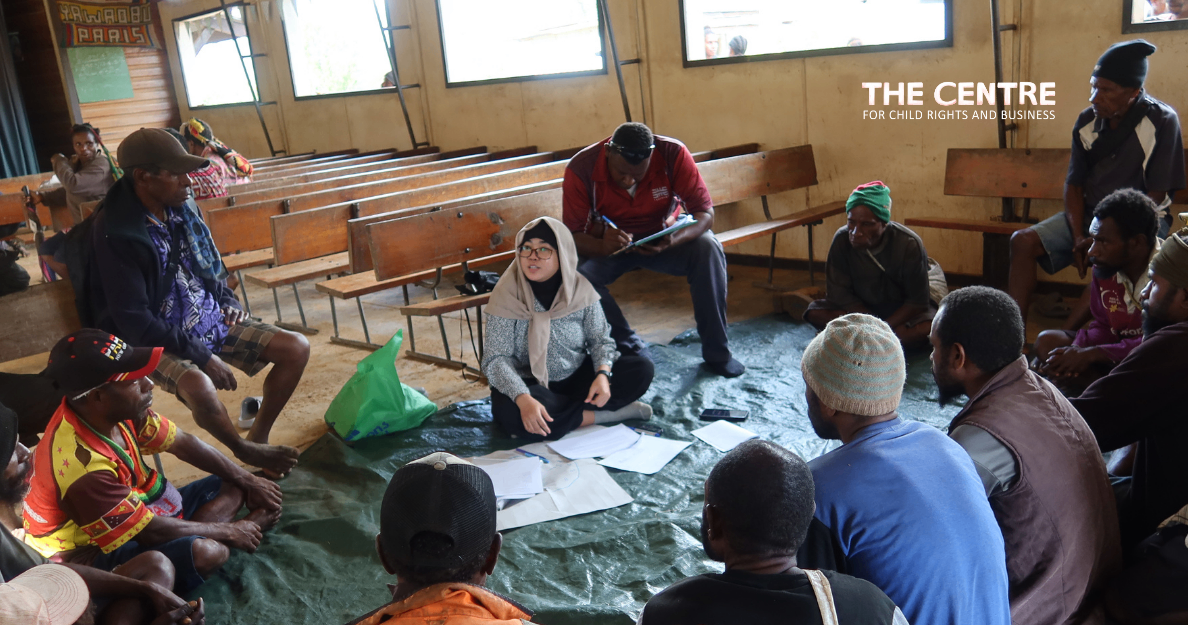

As part of business’ human rights due diligence, it is crucial for brands to identify, assess, mitigate and address the impacts of their activities on supply chain stakeholders, including families and children.
To this end, The Centre conducted a human rights risk assessment in Papua New Guinea (PNG) for an international client, which led two of our staff members, Riri and Reni, to villages in Morobe Province – a remote, mountainous region in PNG. The aim of the assessment was to provide our client with an in-depth understanding of the situation and challenges faced by coffee farming communities in the supply chain, and to map out concrete recommendations for addressing and mitigating risks.
Agriculture is one of the biggest industries in Papua New Guinea (PNG), followed by the extractives industry. The country has a large informal sector that relies on subsistence farming and other small-scale economic activities. This, coupled with high poverty rates, means child rights issues such as child labour, are common.
Riri and Reni interviewed and surveyed close to 200 local stakeholders in various villages in Morobe Province, including smallholder farmers, supplier representatives, community leaders, children, educators, and government representatives. The needs assessment focused on human rights and child rights within the brand’s supply chain. Surveys and focus group discussions with farmers provided insights into their lives, emphasising challenges such as the lack of access to education and healthcare. Participatory exercises involving children and other stakeholders revealed the community’s aspirations and needs.
Despite these challenges, there is potential for positive change. Initiating Human Rights Risk and Impact Assessments, such as the one conducted by The Centre in PNG, marks a crucial first step. These assessments lay the foundation for developing action plans aimed at addressing the most salient challenges affecting workers’ and families’ livelihoods. They also play a vital role in guiding human rights due diligence efforts for brands with global supply chains.
“Through the many human rights impact assessments we have carried out to date in a diverse range of industries and contexts, we know that businesses have an enormous impact on the lives of communities in sourcing countries. When leveraged correctly, business has the ability to significantly improve lives and uplift whole communities, even in the most remote regions of the world. We’re proud of our work in Papua New Guinea and look forward to continuing our collaboration with our client to strengthen child rights in their supply chain,” expressed Reni.
Conducting Human Rights Risk and Impact Assessments in remote agricultural settings provides brands with clear insights into child rights issues, including child labour. This transparency enables brands to take concrete actions to protect children, fulfil commitments to worker well-being, and contribute to global efforts to eliminate child labour. The findings from such assessments inform responsible sourcing strategies, creating a supply chain that prioritises the welfare and rights of everyone involved. By committing to practical measures, brands can address challenges and establish a precedent for ethical and sustainable practices in the industry.
Please contact us if you are interested in learning more about our Human Rights Risk and Impact Assessments.
By using this website, you agree to our use of cookies. We use cookies to provide you with a great experience and to help our website run effectively.